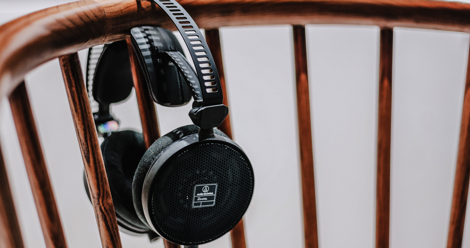
How Audiobooks Have Changed The Way I Read
Before I started listening to audiobooks, I thought that my brain wouldn’t be able to process a story aurally. I was so used to reading as a visual experience that it was hard to imagine what using a different sense to read would feel like. I’m obsessed with audiobooks now, and though I was completely wrong about my brain not being able to process them, I was right about the experience being different. It took me a little while to get used to hearing stories instead of seeing them written on a page. But now that I’m an avid listener, I’ve realized that audiobooks have actually changed the way I read for the better.
Here are a few things I’ve learned about how I experience stories, both aurally and visually, and some of the ways audiobooks have helped me enjoy reading—in all formats—even more that I used to.
chapters, schmapters
I listen to audiobooks while doing other things—driving, cooking, cleaning, walking the dog. Except for the rare audiobook that I simply can’t put down, I stop listening when I’m done with the activity. This almost never aligns with a neat break in the book, so I’ve learned to pause the book wherever. Middle of a paragraph? No problem! As long as the narrator isn’t mid-word, any stopping place is acceptable. When I pick up the book again, I rewind thirty seconds, and I’m never confused about where I am.
This has transferred over into the rest of my reading life, with surprisingly nice consequences. I used to always read up to a good stopping place. This often meant that I’d stay up past the point of exhaustion trying to get to the end of a chapter, and therefore not remember anything that happened in the last ten pages I read. Or, I’d stop reading when I came to the end of a chapter, too intimated to start the next one for fear I wouldn’t finish it, even though I really wanted to read a few more pages.
Now I put down books haphazardly all the time, completely ignoring chapters. It’s delightfully freeing.
ACKNOWLEDGMENTS matter
I love reading the acknowledgements. I like the window into the author’s life they provide. Acknowledgments ground the book in reality, reminding me how much work goes into writing. Sometimes the acknowledgments are especially funny or profound, but even when they’re only a list of names, I read them.
I’d say, on average, about 15% of the audiobooks I listen to include the acknowledgments. I don’t understand this. How hard is it to record an extra two minutes? No one leaves out epigraphs! And yet, for some reason, nobody seems to care about the acknowledgments. I love audiobooks, but this is so frustrating. I didn’t realize how much I’d miss them until, audiobook after audiobook, they just weren’t there. I’ve been known to get a print version of the book from the library just so I can read the acknowledgments.
characters have voices
I’ve never been much of a visualizer. If you asked me to physically describe my favorite characters from fiction, I could tell you their race, their gender, their age—that’s about it. What they actually look like? No idea. For some reason, I just don’t make mental pictures of characters in my head. I certainly never thought about what a character sounded like until I started listening to audiobooks.
But voice is so vital to a good audiobook. A great narrator inhabits the character; their voice becomes the character’s voice. It’s one reason I love listening to fiction on audio—it gives me a window into the characters I don’t get when I read in print. I can’t say that I exactly hear character’s voices, now, when I read in print, but I’m much more aware of those voices. I think about how each character sounds—their accent, their vocal quirks and idiosyncrasies, how emotion changes the way they speak. All this imagining makes my reading experience so much richer.
it’s okay to slow down
It takes a lot longer to speak words out loud than it does to read them in print. I’m a fast reader, and I often find myself zooming through text like I’m trying to win a sprint. With audiobooks, I can’t do that. I know some people like to listen at faster speeds, but this slowness is one of the things I love most about audiobooks. I’m forced to savor moments, to sit inside scenes or descriptions instead of rushing through them. I still read print books fast, but now I often find myself purposely slowing down, imagining how a passage might sound if it were read aloud. This has been a true gift. I know I’ve caught a lot of beauty and meaning in books that I most likely would have missed before I started listening to audiobooks.











